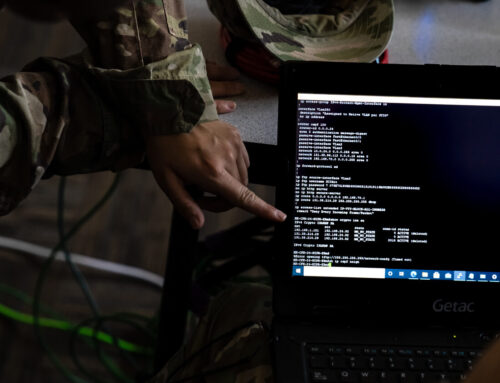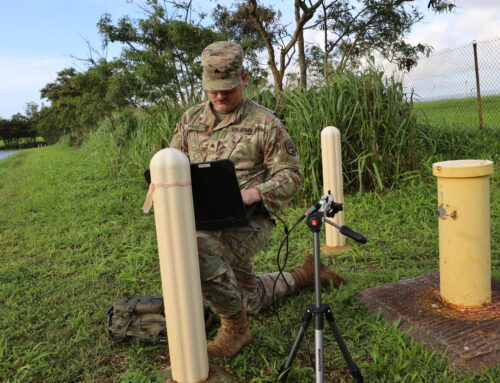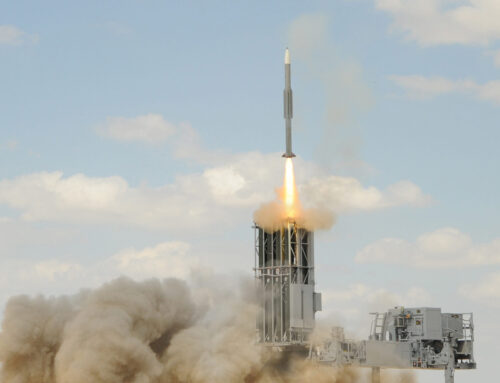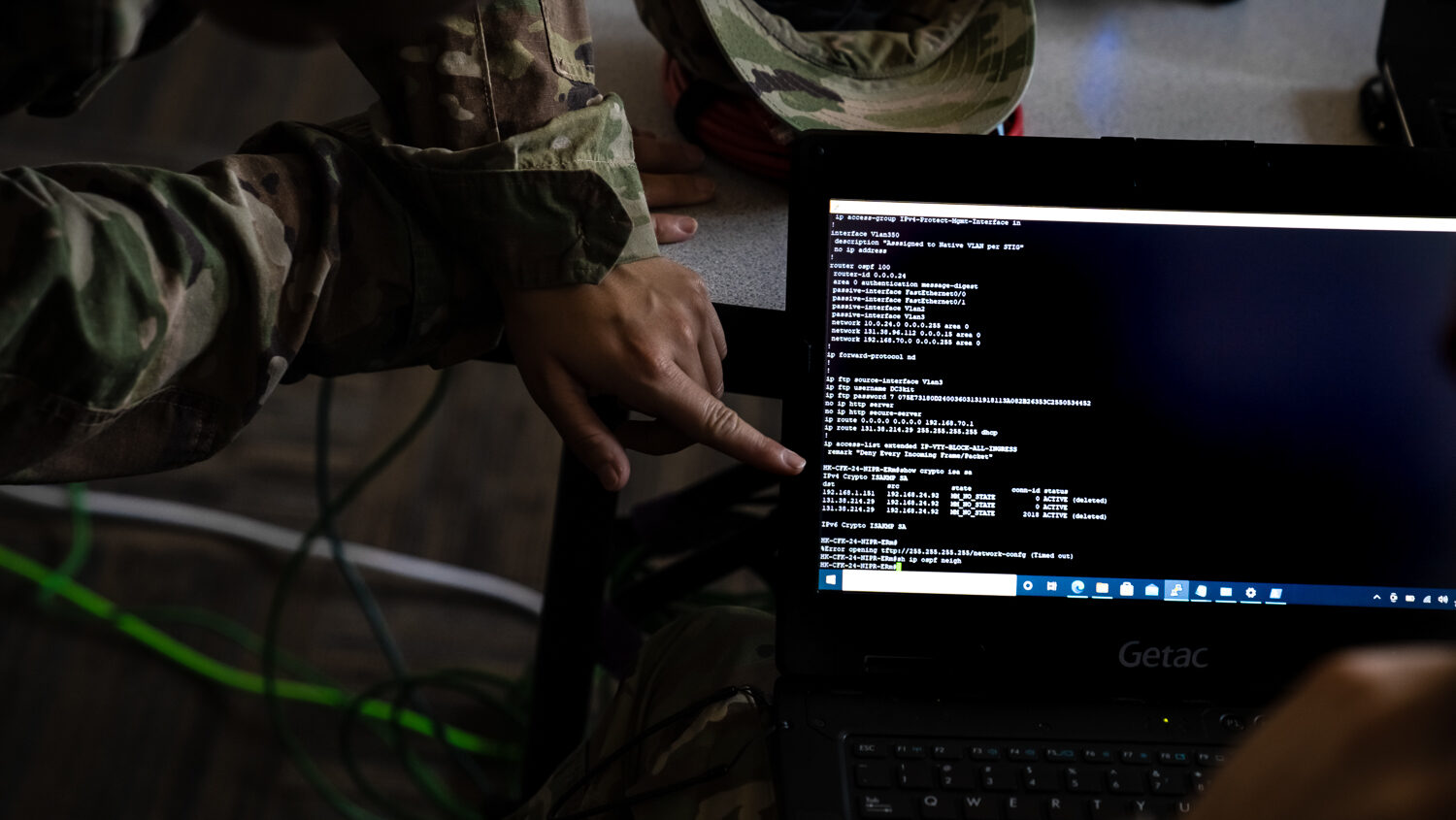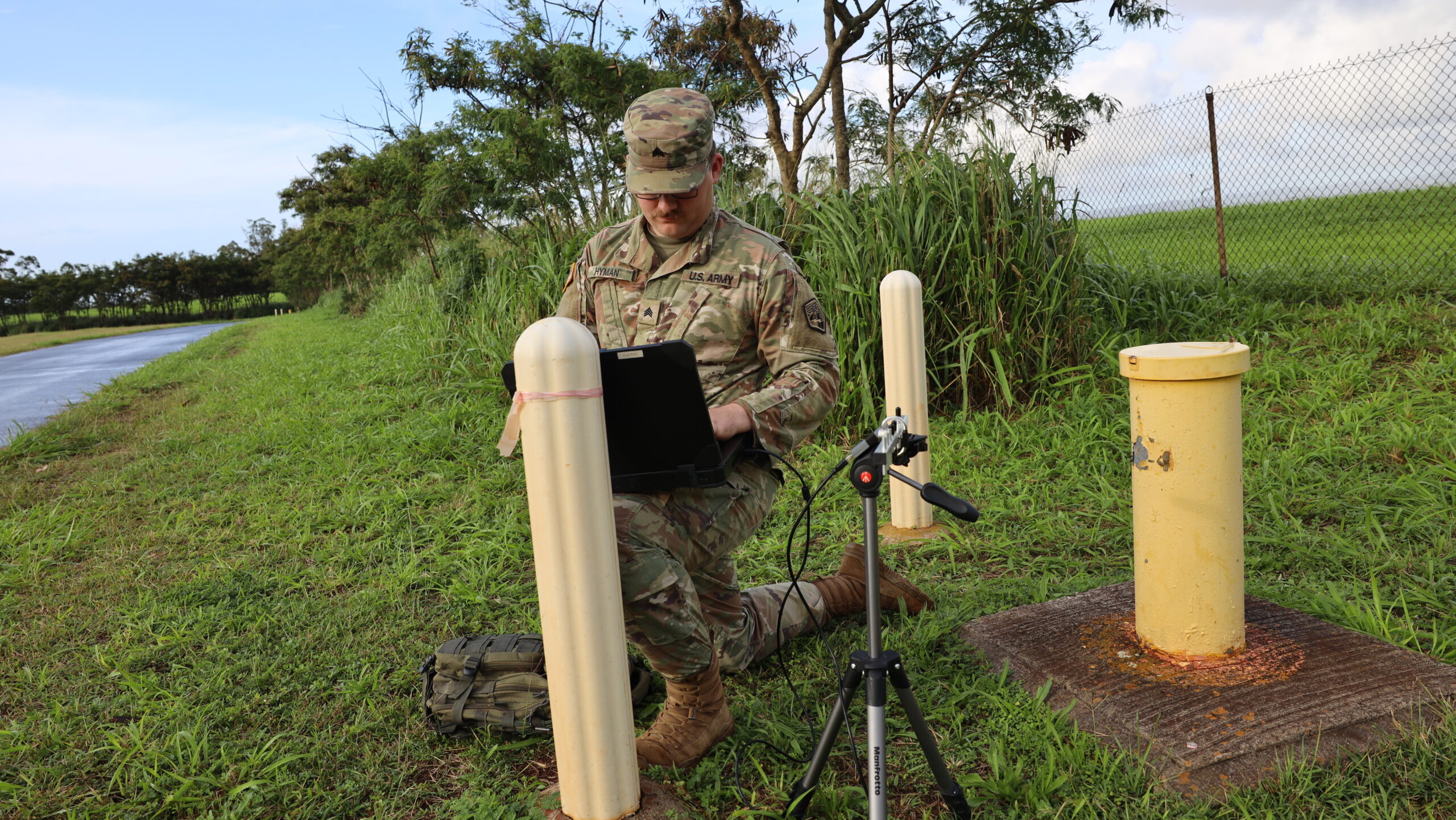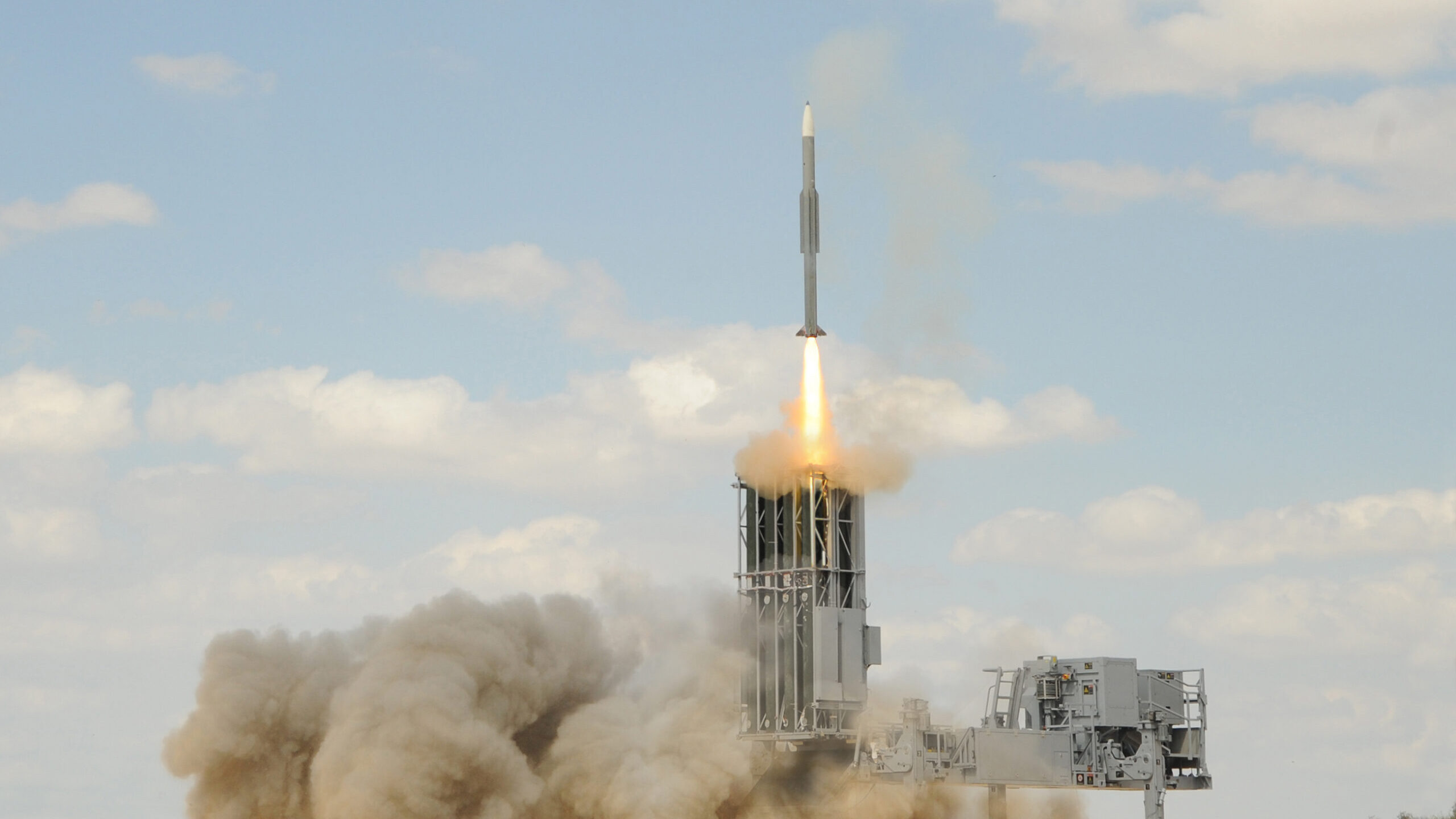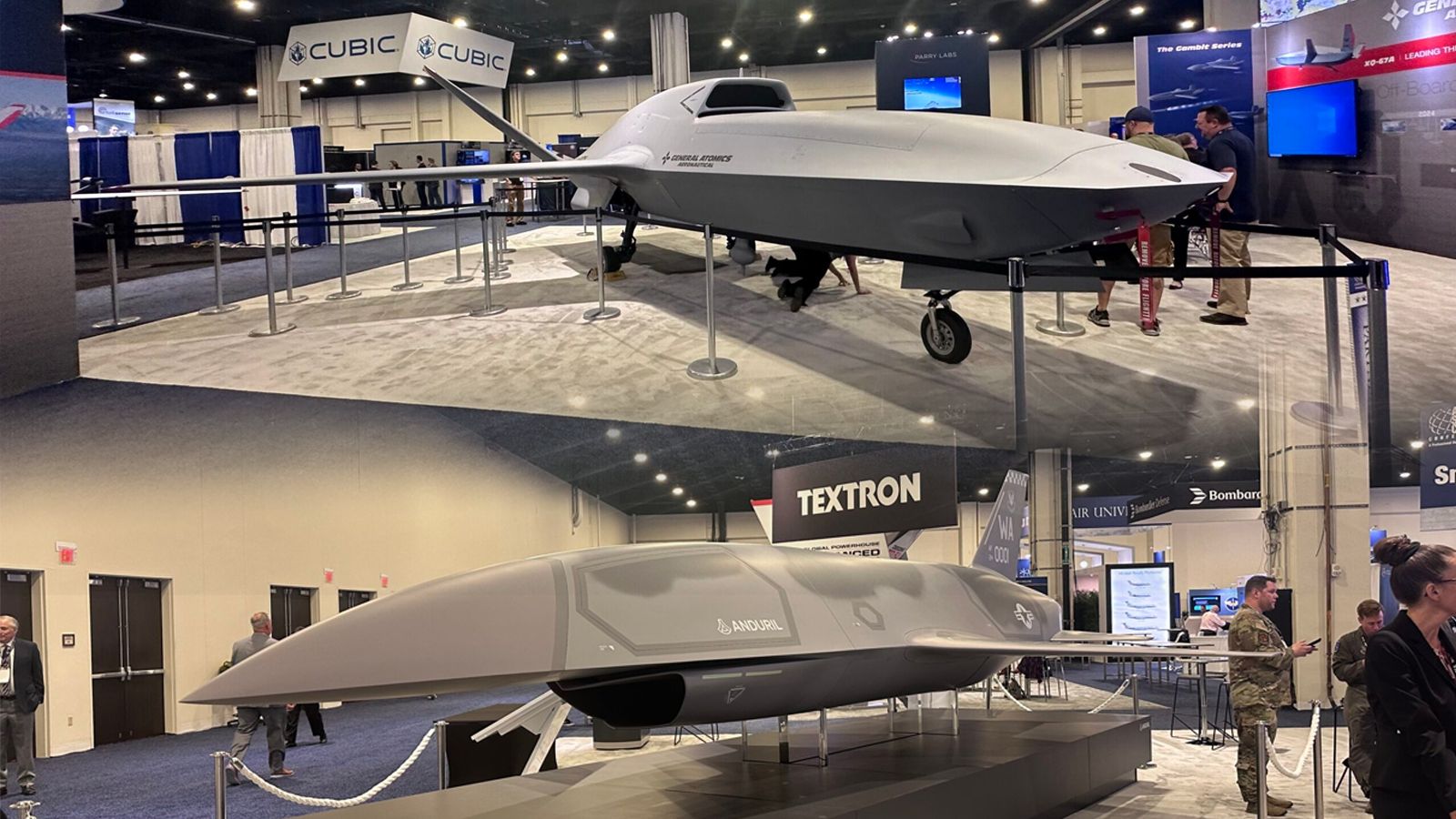Brig. Gen. Anthony Mastalir, head of US Space Forces, Indo-Pacific, speaking in Sydney at Aus Space on May 28, 2024. (Colin Clark / Breaking Defense)
SYDNEY — As the US looks to exploit cracks in China’s formidable “red kill chain,” built expressly to keep the United States well outside the Second Island Chain in the event of a war for Taiwan, Beijing is going have a much harder time doing the same to America’s own “blue” kill chain thanks to a formidable new technology — a jam-resistant Link-16 that now extends to and from space.
“We’ve already demonstrated the ability to transmit Link-16 tactical data lines from space and we’re doing those demonstrations with [the Pacific] Fleet in the Indo-Pacific AOR [Area of Responsibility],” Brig. Gen. Anthony Mastalir, head of space operations for US Indo-Pacific Command, said in answer to a question from Breaking Defense. “It’s going to be a game changer.”
Mastalir was explaining how the command’s top priority was finding ways to crack China’s kill chain, known broadly as Anti-Access/Area Denial. China has engaged in a large buildup of satellites, long-range, high-speed missiles like the DF-26 and related capabilities to keep US forces at bay.
China’s kill chain “is tailor made to prevent the United States from intervening in in the South China Sea, and East China Sea and projecting power inside the second island chain,” he said. “It is tailor made for that.”
Echoing other commanders, he said China’s progress in strengthening its kill chain since 2019 has been “breathtaking.”
Asked how high his confidence is that the US and its allies can pierce the Chinese web, he declined to be direct. “This is not an easy task,” he said, grinning. “But I can tell you that with the partnerships that we have in the Indo-Pacific AOR you know, there are going to be opportunities, and we’ll continue to pursue those.”
He did note that keeping America’s own communications up and running while attacking China’s will be one key. The Link 16 technology was first announced in late November last year and has been tested using Indo-Pacific Command’s Joint Fire Network, a key component of JADC2. Link 16 enables radios to operate across all five US military services as well as with NATO and other allies.
Those radios have had a line-of-sight range of 200 to 300 nautical miles, but basing Link 16 in space effectively allows communications around the globe in near-real-time. The Joint Fires Network is designed to allow commanders to share data so all users can see the same up-to-the minute intelligence, and automate fire control.
Mastalir’s organization is less than two years old, and it’s growing, having doubled to 43 from the 21 billets it had a year ago, and it’s not done.
“We’re now starting to get some civilian billets that we’ll be hiring hiring against this year, as well as some contractors. Additionally, we’re seeing other organizations that are interested in embedding liaisons. So, for example, Space Systems Command out of LA has a liaison of one today and they’re working on getting a second one out of their Warfighter Integration Office. SDA, the Space Development Agency, is going to be embedding a liaison. We have some from the Aerospace Corp, and we’re working on getting Mitre representation,” he said, adding that his component is “working very closely with Australia.”
In addition, Mastalir revealed the military is planning to set up a US Space Forces — Japan based on their work in South Korea, where a component was established in December 2022.
“When we stood up Space Forces Korea, that’s the model that I’m using for Space Force Japan,” he said, without offering a date by which he expected the unit to be stood up.
This process is ongoing throughout the Pacific AOR with allies and partners.
“It really is a conversation with each nation in terms of what are your interests? What are your desires? What are your priorities and objectives? And then, how best might you go after the space capabilities that you need? And in a lot of cases, it’s not about building your own space architecture, your own space enterprise,” the general said. “In some cases, it’s partnering on investments that we’re making. In other cases, it may be a sovereign solution.”




